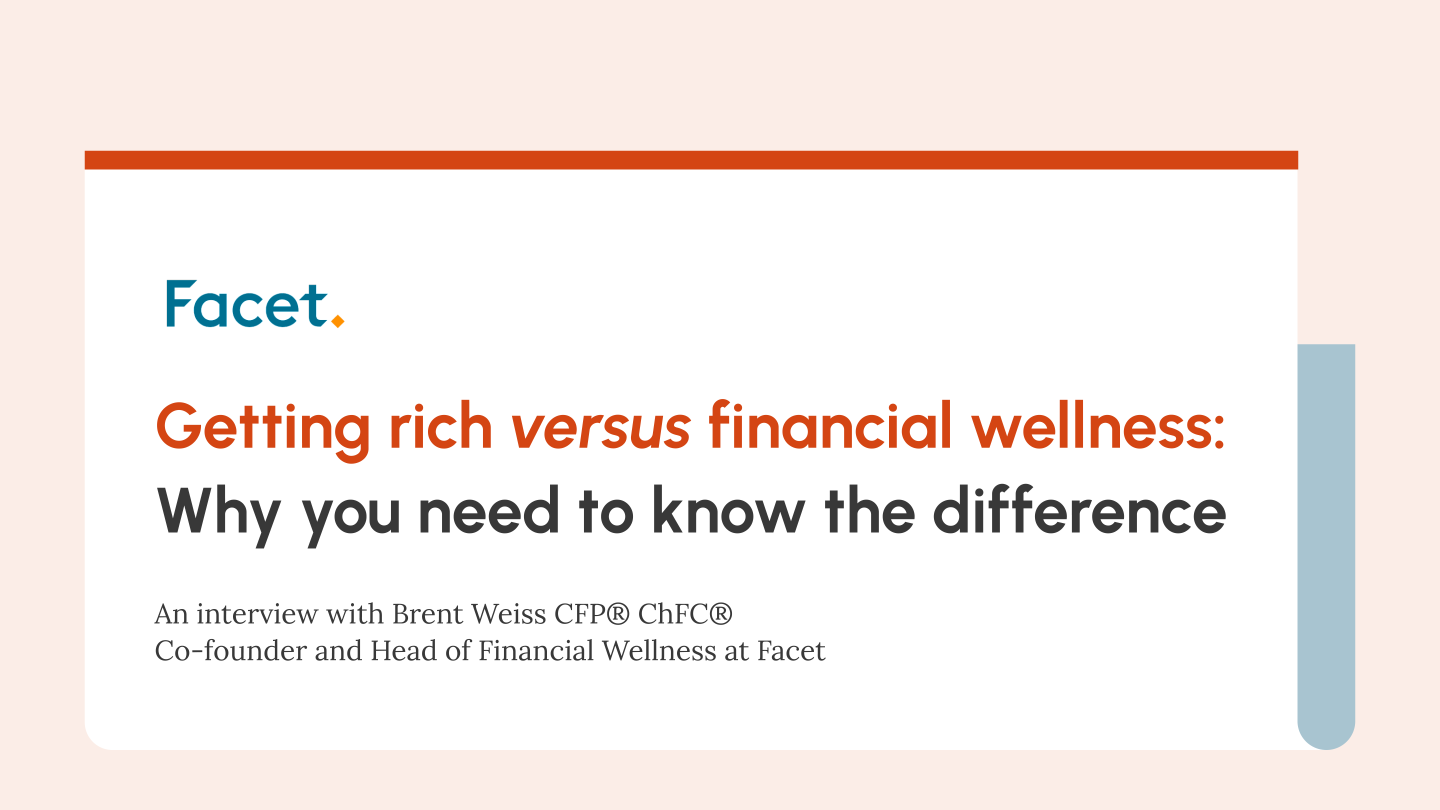Whether your priority is to invest smarter, buy a house, or travel more, the financial success that leads to each milestone is really only part of a bigger picture; a picture that offers a more customized view of your life that experts call financial wellness.
Brent Weiss, Co-Founder and Head of Financial Wellness for Facet, says to think of it like your physical wellness. It’s not just about how much you bench press, how fast you run, or how low your resting heart rate is, “the truth is that it’s a combination of all of these, and the right combination will be different for all of us,” says Weiss, a certified financial planner.
What is financial wellness?
Financial wellness means having a healthy mindset relating to money, having financial security, and being able to make clear and confident financial decisions. It’s not just about financial success, Weiss says. “It answers the much bigger question of, ‘Is my money helping me lead a more fulfilling and enriching life?’”
It’s also a part of your overall wellness, which the Global Wellness Institute defines as “the active pursuit of activities, choices, and lifestyles that lead to a state of holistic health.” [1] There are two key parts of that definition: 1) Wellness isn’t a static state. It’s something you’re always working toward. 2) It’s holistic, extending beyond physical health.
Money-related stress can play a big factor in your wellness. That’s why financial wellness can be a useful framework for approaching money problems, helping to turn your finances into something empowering rather than holding you back.
“Financial planning and the process of improving our financial wellness is about finding freedom from financial worry and stress, aligning our money with our values, navigating every decision with clarity and confidence, and putting ourselves in control of the lives we want to live,” Weiss says.
How can you achieve financial wellness?
Reaching financial wellness starts with your emotional relationship with money.
“Our beliefs, values, attitudes, and emotions around money can either be an inhibitor or a catalyst to our financial health,” Weiss says. “Understanding the psychology of money (how you think, feel, and act) can be a critical first step to finding calm and making decisions with greater clarity and confidence.”
Understanding why you exhibit certain financial behaviors can be important for addressing them. For example, some people overspend because of stress related to their work or family lives. Other people inherit overly restrictive money habits from their parents.
Even if you’re more financially literate than most people, your emotions can play a big unconscious role in your decisions. That’s why it can help to have an outside voice, like a certified financial planner, to help you assess your options.
Once you understand the emotional drivers behind your money decisions, and you can approach your finances without stress, then you can tackle practical matters like making sure you spend less than you make, building an emergency fund, and reimagine the role money plays in your life.
Prioritizing financial wellness
Traditional financial planners often focus strictly on investments and retirement, Weiss says. Facet financial planners look at everything in life that money touches in ways that support “your beliefs, your values, and the life you want to live,” he says.
That includes protecting what you gain along the way with insurance.
“Insurance is an essential element to any financial plan and it ensures you can protect your health, your wealth, and the people you care about the most,” Weiss says.
And just like overall wellness, financial wellness is an “active pursuit.”
“Much like how physical health isn’t achieved by going to the gym one time, financial wellness is only achieved through an ongoing process that leads to a healthier financial lifestyle,” Weiss says. The approach will change and grow along your finances and your life, he adds.
Find out where you are
Disclosure: If you click links on this page, Policygenius may receive financial compensation. Learn more about our editorial standards and how we make money.

